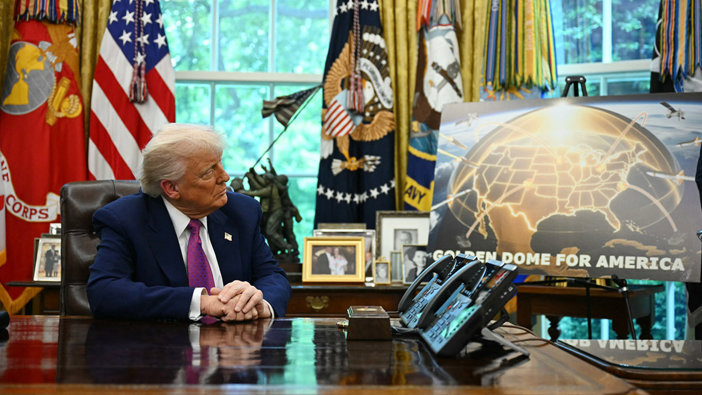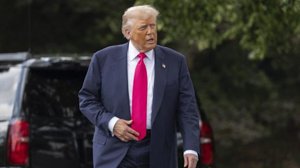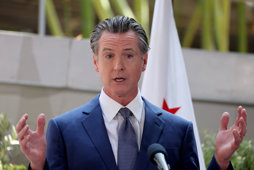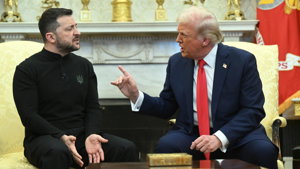
Trump’s "Golden Dome" Missile Plan Draws Global Backlash
Russia, China, and North Korea condemn Trump’s orbital missile shield, calling it destabilizing and dangerous.
Global Adversaries Condemn New U.S. Defense Strategy
President Donald Trump’s unveiling of a $175 billion space-based missile defense initiative, known as the “Golden Dome,” has sparked sharp criticism from three of the United States’ top global rivals—Russia, China, and North Korea. The plan, designed to use satellites and advanced technologies to intercept intercontinental missile strikes, was revealed last week as part of the administration’s ambitious national security strategy.
Trump described the system as capable of detecting and neutralizing missile launches from anywhere in the world. Although the system is projected to take several years to fully deploy, with a three-year goal for partial implementation, its announcement has triggered swift diplomatic backlash.
North Korea’s foreign ministry denounced the project as a catalyst for a “nuclear war scenario in outer space,” arguing it serves Washington’s push for “uni-polar domination.” In a strongly worded statement, the ministry called the project “the height of self-righteousness, arrogance, high-handed and arbitrary practice,” and characterized it as a move to militarize space and secure comprehensive military supremacy.
Russia joined in the condemnation through remarks from Foreign Minister Maria Zakharova, who warned that the Golden Dome could “undermine the basis of strategic stability” by establishing a global missile defense framework. Zakharova’s comments echo a broader position shared in a joint statement issued earlier this month by Russian President Vladimir Putin and Chinese President Xi Jinping, who called the plan “deeply destabilizing.”
In their joint communiqué, the leaders argued that the initiative erodes the “inseparable interrelationship between strategic offensive arms and strategic defensive arms,” and warned that it risks turning outer space into a battleground for militarized confrontation.
China also responded with forceful opposition. Foreign Ministry Spokesperson Mao Ning stated last week that the Golden Dome “will heighten the risk of turning space into a war zone and creating a space arms race,” warning that it would shake the foundations of global arms control agreements and international security systems.
Although the White House has not issued a direct response to the criticism, U.S. Secretary of Defense Pete Hegseth defended the project. “All we care about is protecting the homeland,” he stated, dismissing concerns that the system represents an offensive maneuver or a provocation in the global arena.
The announcement came just two days after President Trump’s extended phone call with President Putin, further fueling speculation about international tensions and diplomatic calculations behind the scenes. While Russia’s official response has remained relatively subdued since the Oval Office announcement, the coordinated reaction from its top officials and global partners signals a mounting resistance to the U.S.’s space-based defense ambitions.
As development on the Golden Dome progresses, international observers warn that the initiative may redraw the boundaries of geopolitical competition, not only on Earth but in the strategic realm of outer space.






